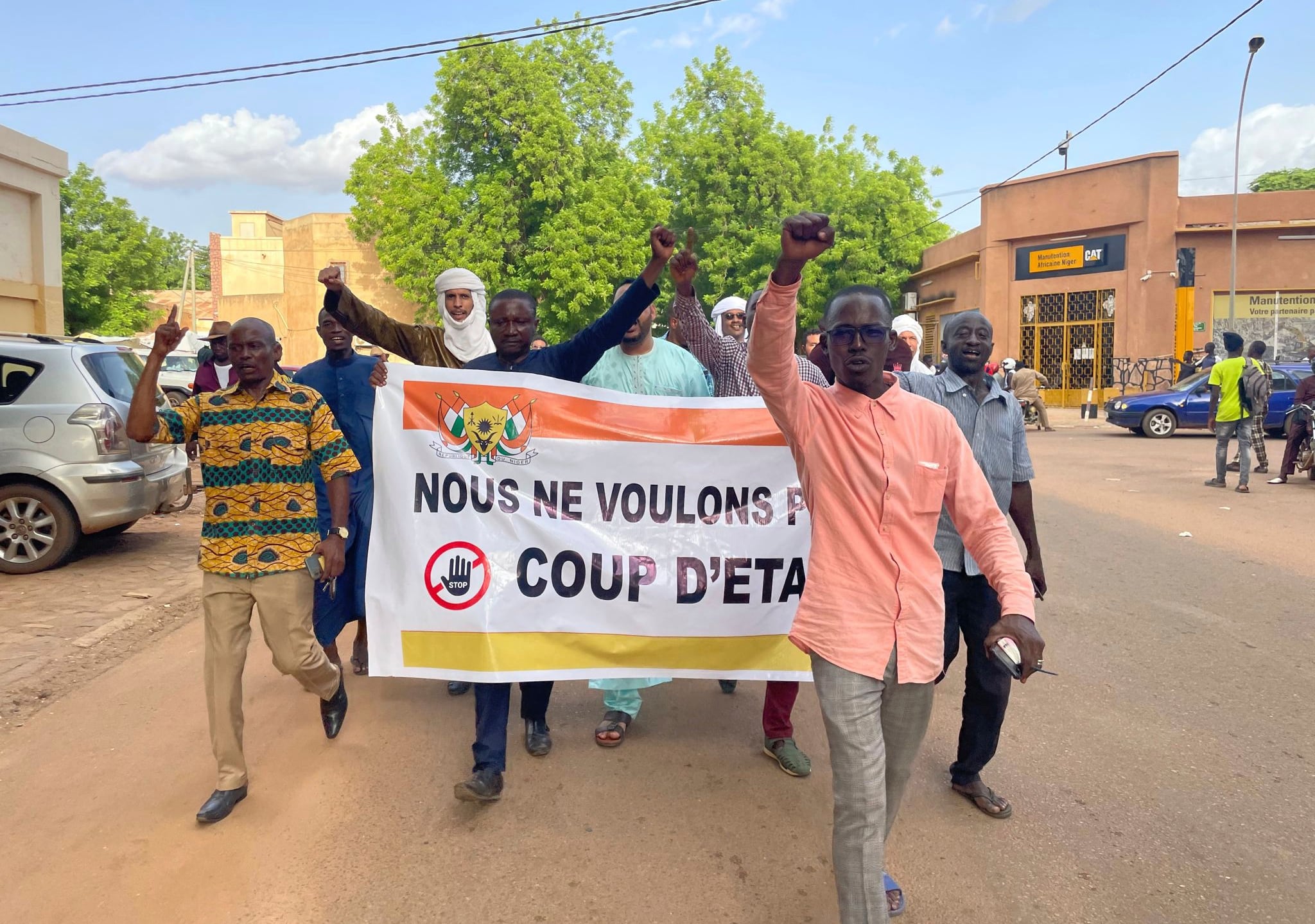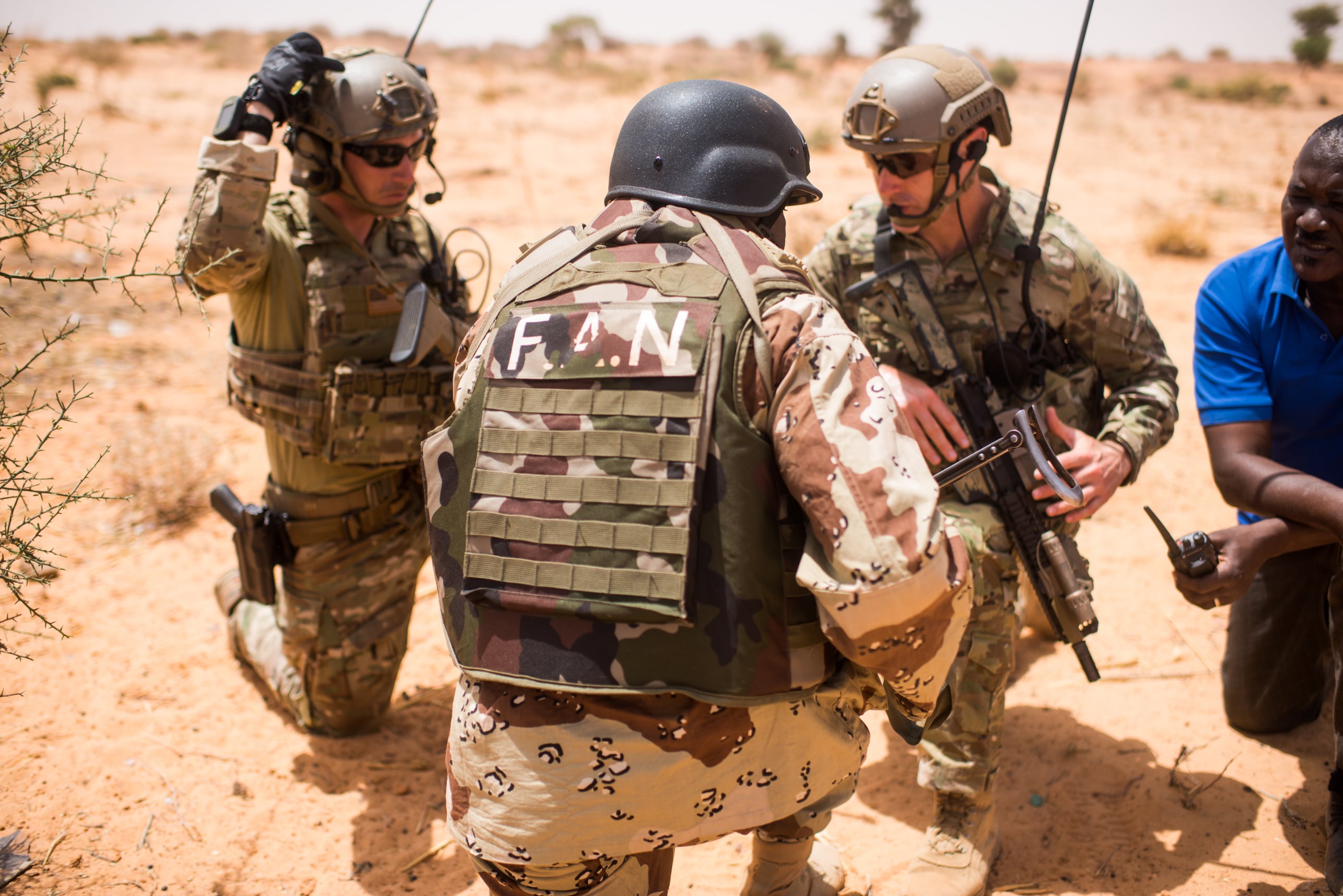The U.S. mission in Niger is in a holding pattern following Tuesday’s announcement that the removal of the country’s democratically elected president is now designated a coup by the State Department, prompting official suspension of U.S. aid, including equipment and training.
The Army stepped in back in July to help move troops and equipment, mostly assigned to Special Operations Command-Africa, to bases in Agadez and the capital city of Niamey, the head of Army operations in Africa told reporters on Wednesday. That mission is done, he added, but his command is awaiting policy instructions for what comes next.
“There will be some things that are suspended but most of those don’t directly affect us,” Maj. Gen. Todd Wasmund said of the overall mission, which includes training, key leader engagements and projects that directly support Nigerian locals. “They do require a little bit more scrutiny of how we might provide some of that partnered support. And that’s not something we can continue without further policy decision.”
The U.S. mission in Niger in recent years has been geared toward helping the country defend itself against violent extremism groups, including the Islamic State. But Wasmund’s command, U.S. Army Southern European Task Force, Africa, also has a hand in any U.S. military crisis response on the continent.
“That’s not expressly prohibited,” he said, following the coup designation, “but it does require validation for policies.”
RELATED

There are roughly 1,000 troops still in Niger, an administration official, who was not authorized to speak on the record about the decision, told reporters during a briefing Tuesday. Those troops are limited to intelligence, surveillance and reconnaissance flights to ensure their own safety.
“We continue to provide life support to the people at the airbases there,” Wasmund said. “We continue to provide security. We have an organic but smaller capability to conduct airfield operations, which is really led by the Air Force.”
A small counter-terror element is still in the country, he added, as well as a civil affairs team.
“They are similarly affected by the some of the policy determinations, and so their direct engagement with the Nigerians is right now reduced — but they’re still there,” he said.
The U.S. government is communicating with Niger’s military government ― dubbed National Council for the Safeguard of the Homeland, or CNSP ― about “restoring civilian democratic order,” the official told reporters Tuesday.
“We are coordinating with the CNSP to protect our personnel, facilities and assets, and advance shared security interests in West Africa during this political upheaval,” the official said.
The group, led by Gen. Abdourahamane Tchiani, deposed President Mohamed Bazoum in late July and has been keeping him hostage since.
Meghann Myers is the Pentagon bureau chief at Military Times. She covers operations, policy, personnel, leadership and other issues affecting service members.





